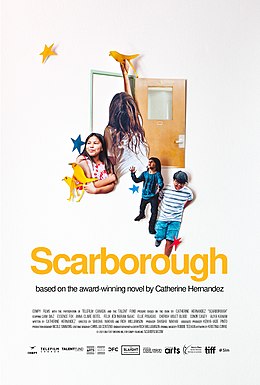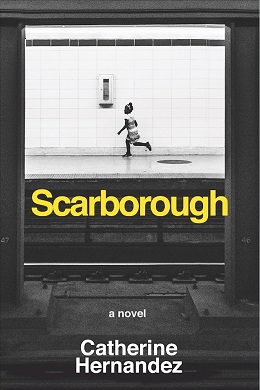The Academy of Canadian Cinema and Television presents an annual award for Best Performance by an Actor in a Supporting Role to the best performance by a supporting actor in a Canadian film. The award was first presented in 1970 by the Canadian Film Awards, and was presented annually until 1978 with the exception of 1974 due to the cancellation of the awards that year.
The Academy of Canadian Cinema and Television presents an annual award for Best Performance by an Actress in a Supporting Role to the best performance by a supporting actress in a Canadian film. The award was first presented in 1970 by the Canadian Film Awards, and was presented annually until 1978 with the exception of 1974 due to the cancellation of the awards that year.
The Canadian Screen Award for Best Achievement in Art Direction/Production Design is awarded by the Academy of Canadian Cinema and Television to the best Canadian film art direction/production design.
The Canadian Screen Award for Best Costume Design is awarded by the Academy of Canadian Cinema and Television to the best Canadian costume designer. It was formerly called the Genie Award for Best Achievement in Costume Design before the Genies were merged into the Canadian Screen Awards.
The Canadian Screen Award for Best Achievement in Sound Mixing is awarded by the Academy of Canadian Cinema and Television to the best work by a sound designer in a Canadian film. Formerly known as Best Overall Sound, it was renamed to Best Sound Mixing at the 9th Canadian Screen Awards in 2021.
The Canadian Screen Award for Best Achievement in Editing is awarded by the Academy of Canadian Cinema and Television to the best Canadian film editor in a feature film. The award was presented for the first time in 1966 as part of the Canadian Film Awards, and was transitioned to the new Genie Awards in 1980. Since 2012 it has been presented as part of the Canadian Screen Awards.
The Canadian Screen Award for Best Achievement in Sound Editing is awarded by the Academy of Canadian Cinema and Television to the best sound editor on a Canadian film. The award was first presented in 1970 as part of the Canadian Film Awards, before being transitioned to the new Genie Awards in 1980; since 2013 it has been presented as part of the Canadian Screen Awards.
The Canadian Screen Award for Best Animated Short is awarded by the Academy of Canadian Cinema and Television to the best Canadian animated short film. Formerly part of the Genie Awards, since 2012 it has been presented as part of the Canadian Screen Awards.
The Academy of Canadian Cinema and Television presents an annual award for Best Feature Length Documentary. First presented in 1968 as part of the Canadian Film Awards, it became part of the Genie Awards in 1980 and the contemporary Canadian Screen Awards in 2013.
The Academy of Canadian Cinema and Television's Award for Best Short Documentary is an annual Canadian film award, presented to a film judged to be the year's best short documentary film. Prior to 2012 the award was presented as part of the Genie Awards program; since 2012 it has been presented as part of the expanded Canadian Screen Awards.
The Donald Brittain Award is a Canadian television award, presented by the Academy of Canadian Cinema and Television to honour the year's best television documentary on a social or political topic. Formerly presented as part of the Gemini Awards, since 2013 it has been presented as part of the Canadian Screen Awards. The award may be presented to either a standalone broadcast of a documentary film, or to an individual full-length episode of a news or documentary series; documentary films which originally premiered theatrically, but were not already submitted for consideration in a CSA film category before being broadcast on television, are also considered television films for the purposes of the award.
The Canadian Screen Award for Best Cinematography in a Documentary is an annual award, presented as part of the Canadian Screen Awards program to honour the year's best cinematography in a documentary film. It is presented separately from the Canadian Screen Award for Best Cinematography for feature films.
The Canadian Screen Award for Best Editing in a Documentary is an annual award, presented as part of the Canadian Screen Awards program to honour the year's best editing in a documentary film. It is presented separately from the Canadian Screen Award for Best Editing for narrative feature films.
The Canadian Screen Award for Best Hair is an annual award, presented by the Academy of Canadian Cinema and Television, as part of the Canadian Screen Awards program, to honour achievements in hairstyling in Canadian film.
The Canadian Screen Award for Best Supporting Actor in a Drama Series or Program is an annual Canadian television award, presented by the Academy of Canadian Cinema and Television to the best supporting performance by an actor in a Canadian dramatic television series or television film. Previously presented as part of the Gemini Awards, since 2013 it has been presented as part of the Canadian Screen Awards.
The Canadian Screen Award for Best Supporting Actress in a Drama Series or Program is an annual Canadian television award, presented by the Academy of Canadian Cinema and Television to the best supporting performance by an actress in a Canadian dramatic television series or television film. Previously presented as part of the Gemini Awards, since 2013 it has been presented as part of the Canadian Screen Awards.

Scarborough is a 2021 Canadian drama film, directed by Shasha Nakhai and Rich Williamson. An adaptation of Catherine Hernandez's 2017 novel Scarborough, the film centres on the coming of age of Bing, Sylvie and Laura, three young children in a low-income neighbourhood in the Scarborough district of Toronto, as they learn the value of community, passion and resilience over the course of a school year through an after-school program led by childhood educator Ms. Hina.

Rich Williamson is a Canadian film director, cinematographer and editor, most noted as codirector with Shasha Nakhai of the 2021 film Scarborough. The film won the Canadian Screen Award for Best Picture, and Nakhai and Williamson won the award for Best Director, at the 10th Canadian Screen Awards in 2022.
Alicia K. Harris is a Canadian film director and screenwriter. She attracted critical acclaim for her 2019 short film Pick, which won the Canadian Screen Award for Best Live Action Short Drama at the 8th Canadian Screen Awards in 2020.

Scarborough is the debut novel by Canadian writer Catherine Hernandez, published in 2017. Set in the Toronto district of Scarborough, the novel centres on the coming-of-age of three young children living in the low-income Galloway Road neighbourhood — Bing, a boy struggling with his sexual identity; Laura, a girl who longs for stability as she is continually being shuffled back and forth between her mother's and her father's separate homes; and Sylvie, a girl whose family is living in a homeless shelter — as well as Hina, a community literacy worker who strives to be an oasis of support and guidance for underprivileged children in her community.



